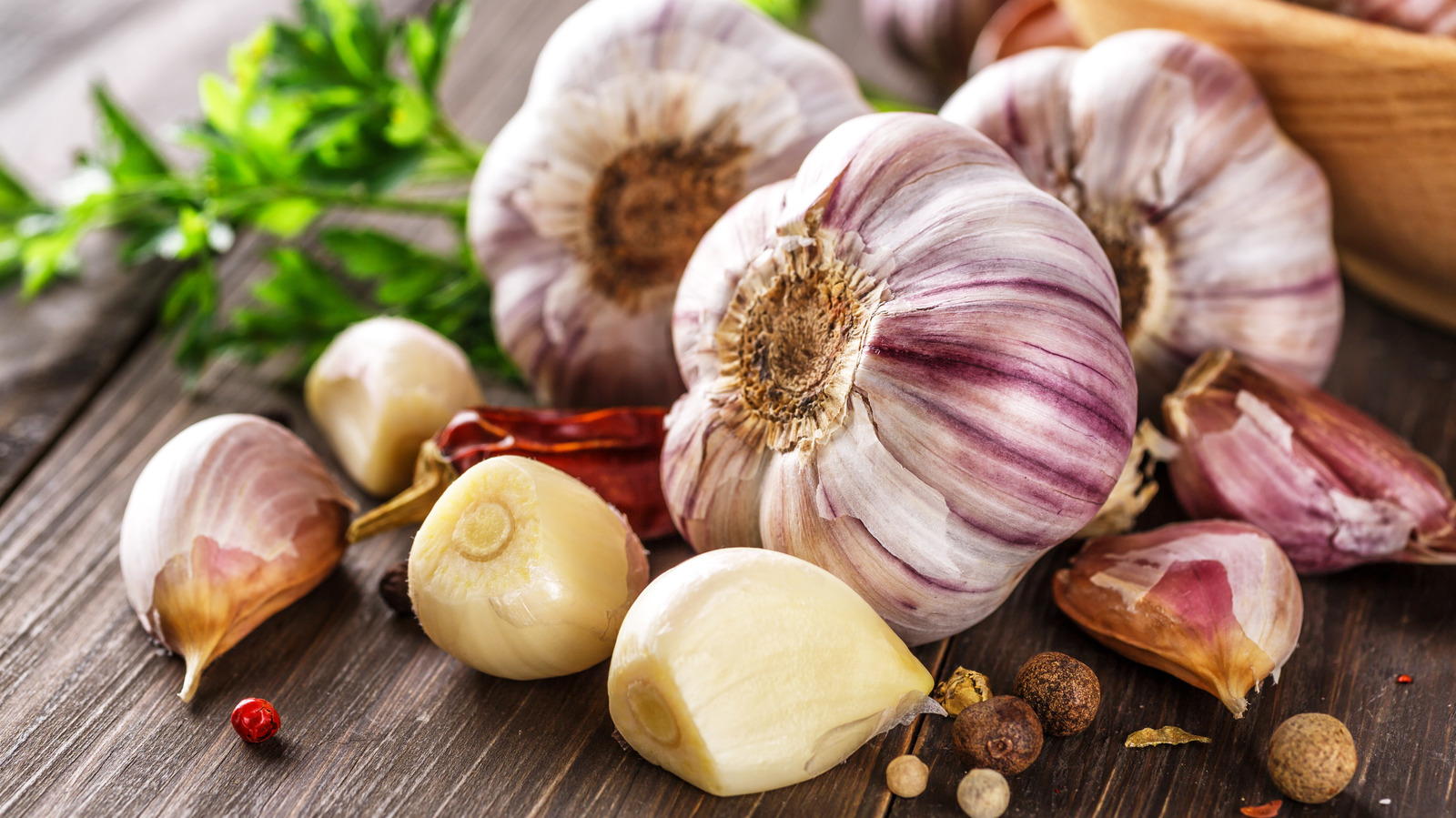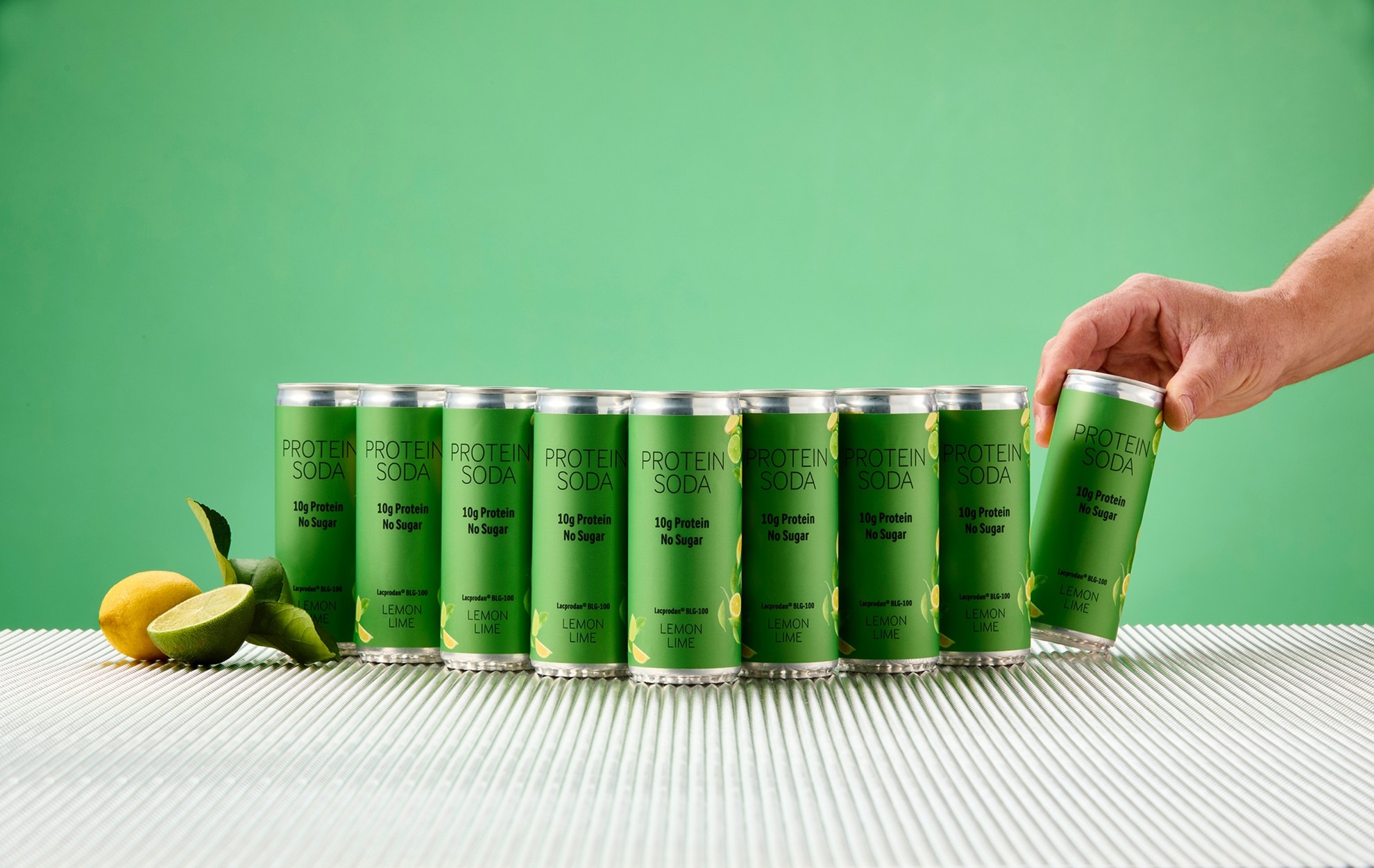Raise your hand if you've been guilty of using a broad brush to paint a few too many things as one and the same. For example, the first time I encountered a plantain I definitely thought of it as a banana despite the fact I was informed it wasn't one. The way I saw it was pretty simple: If it's not a banana, then it shouldn't look like a banana.
All this is to say it's easy to confuse food items. In the same vein, if you've ever stood in the spice aisle and stared at the garlic powder and granulated garlic wondering if there's really a difference, you aren't alone. On the surface, the two seem nearly identical.

Both bring that strong, savory garlic flavor to dishes without the hassle of peeling or mincing cloves. But there is a difference which comes down to texture and how they're used in cooking. Garlic powder is super fine, almost like soft dust, whereas granulated garlic is coarser, like fine sand.
That might seem like a technicality, but it actually changes how each one behaves in your recipes. Garlic powder blends into sauces and liquids quickly, while granulated garlic takes its time, releasing its flavor a little more slowly. In the end, both bring that delightful garlicky goodness, but knowing when to use which one can really help a dish reach its full potential.
Flavor and texture differences you'll actually notice The reason both garlic powder and granulated garlic have such a strong flavor is because they're . The perceived potency is directly related to the size you grind the garlic down to, as the size determines the difference in texture. Because of this, the way they hit your palate isn't exactly the same.
Garlic powder tends to have a slightly more intense flavor because it rapidly dissolves into a dish, almost disappearing into the; making the garlic flavor feel like it's built right in. Granulated garlic is a little more rugged. Because it's more coarse, it takes longer to release the goods.
In practice, that means a dry rub on chicken will deliver little explosions of garlic instead of moonlighting as a background hum. If you want something a bit more layered and not just "garlic everywhere at once," granulated garlic might be your secret weapon. Sometimes a little roughness around the edges tastes way better.
When to use each (and how to swap them) Knowing which to use depends on what you're making. Garlic powder is your best bet for liquids such as soups, salad dressings, marinades, and sauces because it dissolves almost instantly and gives you a smooth texture. It's also a go-to if you're making spice blends for sprinkling over popcorn, chips, or roasted nuts where you don't want any noticeable grit.
Granulated garlic does well in dry rubs where a little texture is a bonus, but it also holds up beautifully in slow-cooked or roasted dishes. It doesn't burn as quickly, which makes it a safe option when you're cooking something at high heat. Of course, reasonable minds may differ and exceptions to the rule exist.
It ultimately comes down to preference, but they are, in fact, interchangeable. I, for one, like to use garlic powder when I'm making green beans with pancetta or homemade pasta sauce. If you need to substitute one for the other, it's pretty easy.
Just know that garlic powder is more concentrated. You'll want to use about half as much garlic powder as you would granulated garlic. If a recipe calls for 1 teaspoon of granulated garlic and you're using garlic powder instead, start with 1⁄2 teaspoon and adjust to taste.
At the end of the day, there are a ton of . But you really gotta understand how they differ so you can make the right choice in case you only have one or the other. You don't want to kill the whole dish by making it one note.
Recommended.
Food

What's The Actual Difference Between Garlic Powder And Granulated Garlic?

Garlic is a staple ingredient, but there are a ton of garlic products to choose from. What's the actual difference between granulated garlic and garlic powder?












